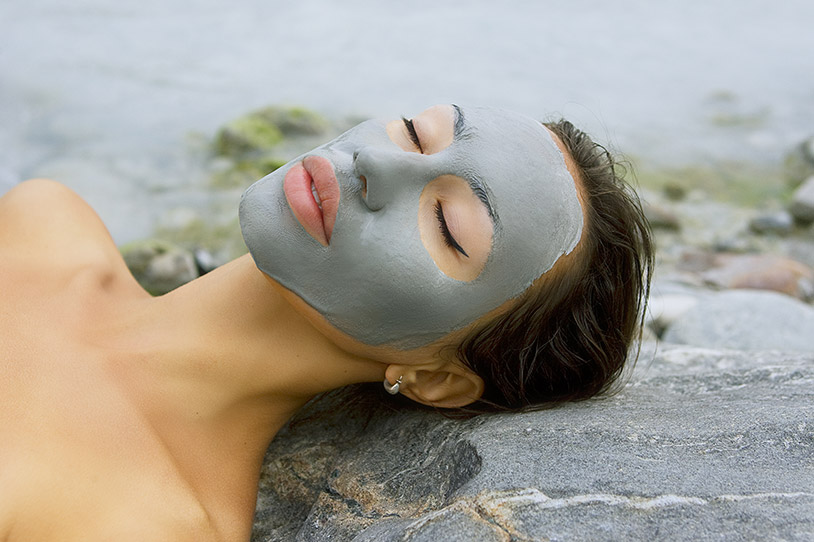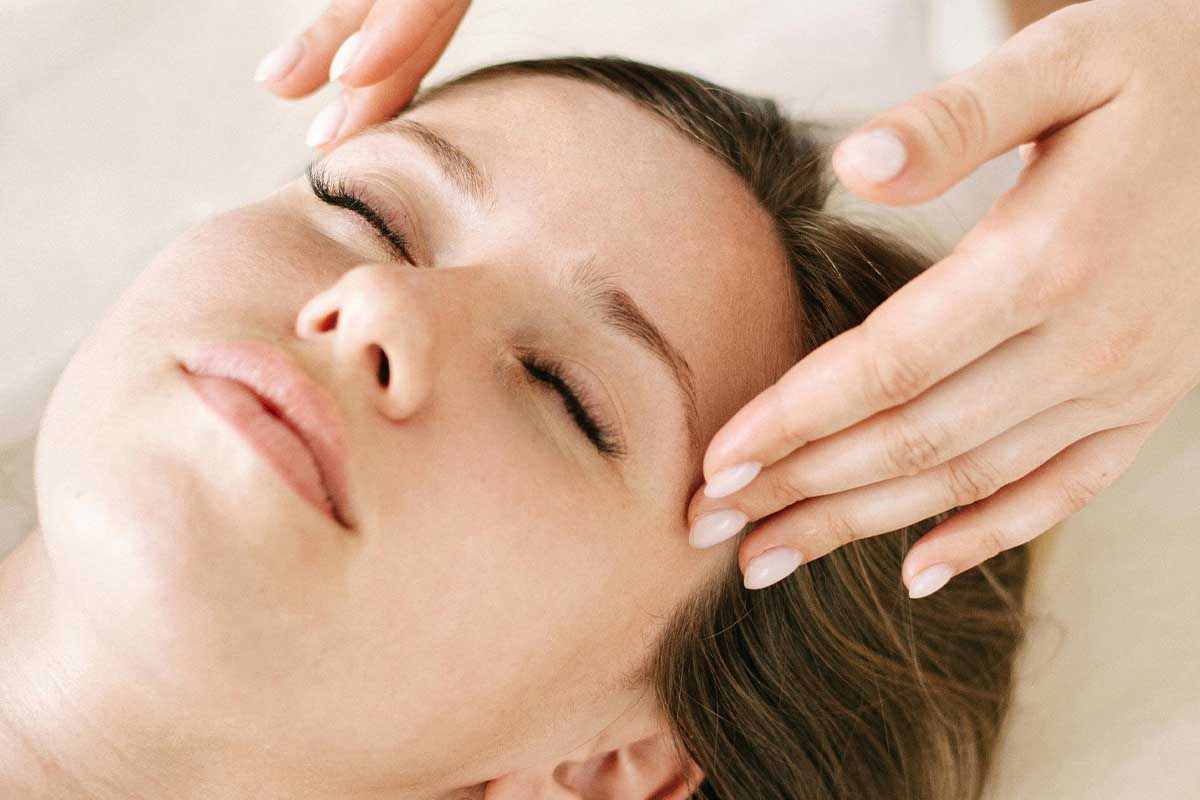Advertisement
Unmask Healthy Skin
The beauty trick that’s a treat for your face

If the words “at-home facial mask” bring to mind the strawberry-perfumed drugstore masks that were all the rage at teenage sleepovers, think again. Today’s sophisticated facial masks are made from luxurious natural ingredients and formulated for everyone—including guys.
Advertisement
Behind the mask
Facial masks are one of the most loved staples in any beauty buff’s arsenal: they not only offer a spa-like experience at home, but also deliver concentrated skin care ingredients for whatever our complexions are calling out for.
Not sure where to start? Follow these steps to discover and use the perfect at-home facial mask.
Advertisement
Step 1: Choose your mask type
There are many types of facial masks at well-stocked natural health retailers. Some newer ones may surprise you.
Creamy
Generally rich in texture, traditional creamy masks are typically meant to be left on for several minutes and then removed with warm water and a soft washcloth.
Peel-off
Peel-off masks often have a gel texture and are typically made for blemish-prone skin. They are applied in a thin layer, allowed to dry on the skin, and peeled off after the allotted time.
Sheet
Here’s something new: sheet masks are one of the latest Asian beauty products hitting North American shelves. The beauty of a sheet mask is that you don’t need to wonder how much you should apply—simply take the cloth mask out of the package, stick it onto skin, and remove after the allotted time. Ta da! Just don’t get spooked by the fact that you’ll look like a ghost while wearing it.
Sleeping
Sleeping masks—also known as overnight masks—can be thought of as super-powered night creams. These time-saving wonders are great for those who wouldn’t typically use a facial mask otherwise. They’re also perfect for delivering heavy-duty moisture and nourishment to dehydrated skin.
Advertisement
Step 2: Pick your focus
Some mask types lend themselves to certain skin care benefits (such as sleeping masks for hydration), so it’s important to choose your complexion goal before purchasing. No matter which type you choose, be sure to avoid nasty ingredients such as parabens and phthalates.
Here are some popular formulations and key ingredients worth looking for.
Hydrating
Facial masks are the perfect delivery system for no-nonsense moisturizing ingredients.
Star ingredients:
- Fruit or nut oils, such as camelina oil or grapeseed oil, bring moisture and nourishment to the skin.
- Yogurt in facial masks has been shown to boost moisture levels in skin while also increasing elasticity and brightness.
Calming
Irritated or sensitive skin that’s prone to redness can benefit from a soothing, cooling mask.
Star ingredients:
- Colloidal oatmeal has been shown in scientific studies to offer soothing, anti-itching properties for skin.
- Aloe helps to moisturize and soothe skin, leaving it feeling refreshed.
Acne-fighting
Tired of covering up? Use supercharged natural ingredients to help breakouts disappear and to help ward off future breakouts.
Star ingredients:
- Witch hazel is often used as a soothing astringent for acne-prone skin.
- Natural acids, such as beta hydroxy acids, help exfoliate or resurface skin, combatting blemishes naturally.
Oil-controlling
Not all oily skin needs anti-acne products. Using these products on oily skin that doesn’t have blemishes can sometimes aggravate the skin. Thankfully, other masks can provide a deep cleansing experience, minimize pores, mattify skin, and rebalance the complexion.
Star ingredients:
Clay is a staple in many facial masks. Thought to help purify skin while draining accumulated water and facial oil, it’s a dream for those suffering from oiliness.
Green tea has been shown in research to help decrease oil production—plus, it has antioxidant properties! Talk about a win-win.
Antiaging
While no facial mask can actually turn back the clock, skin nourishment may help make mature skin look softer, fuller, and more radiant.
Star ingredients:
- Antioxidants such as vitamin C are thought to help reduce sun damage and discoloration.
- Rose oil is added to formulations for mature skin to nourish, repair, and soften skin.
Advertisement
Step 3: Prep your skin
To ensure your chosen mask’s hardworking ingredients reach your skin, remove all makeup with a gentle cleanser. For a full spa experience, you can then use an exfoliating or steaming treatment; however, those with particularly sensitive skin should go easy.
Advertisement
Step 4: Use your mask
Masks vary wildly when it comes to instructions for use, so follow the directions carefully and avoid making assumptions, such as how often to use the mask or whether or not to rinse it off. Your face will not be happy if you mistake a peel-off mask for a sleeping mask.
Advertisement
Step 5: Post-mask skin care
After your facial mask, apply your favourite natural moisturizer to keep skin supple and hydrated, and let your skin soak in the goodness. (This makes nighttime a perfect time for applying facial masks!)
Advertisement
Mini mask
If one part of your face is particularly prone to blemishes and you don’t have time to apply a whole face mask, try using the mask as a spot treatment. Simply apply a pea-size amount of the mask onto the problem area and follow the manufacturer’s instructions.
Advertisement
Hair masks?
Think of a hair mask as a cousin to leave-in conditioner. Often featuring smoothing plant or nut oils and vitamins, hair masks can help dry, brittle hair regain its shine and vibrancy.
Advertisement
Masks for men
Don’t be shy, guys! Masks can do wonders for your complexions, too—when you know which products to choose.
Due to many factors, including hormones, men and women often have differences in their skin. In general, male skin sweats more, produces more oil, and is thicker. Therefore, men may benefit more from facial masks targeting oil control and acne. One interesting 2010 study found that a green tea emulsion helped to reduce oil production in men, suggesting that this might be a key facial mask ingredient to look for.





